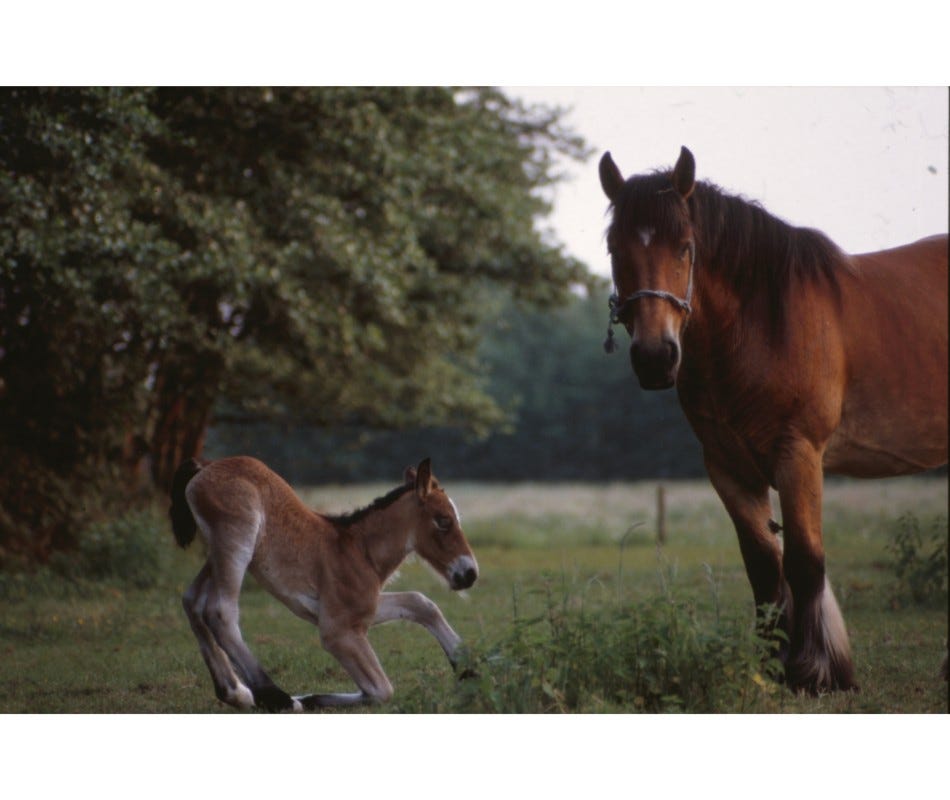We use cookies to make your experience better. To comply with the new e-Privacy directive, we need to ask for your consent to set the cookies. Learn more
How to care for mares and foals when Horse worming
Taking care of horses is usually fairly straightforward.
Broodmares are generally valued for their proficiency at carrying healthy foals to term and transmitting excellent pedigrees, athleticism. Therefore owners usually take a little extra care with different protocols created for the broodmare.
Deworming the Expectant Mare - What Dewormer is Safe?
Deworming pregnant mares is one protocol that most horse owners consider carefully before administering. In general many are uncertain of the proper horse worming procedure to observe for expectant mares with safety as the primary concern.
Ivermectin (AbIver) is a popular wormer used for different types of equine parasites and is also known to be a safe choice for pregnant mares. There are also other options considered to be safe for the expectant horse like fenbendazole (AbFen). It is generally recommended to use these dewormers by rotation during pregnancy. For instance, pregnant mares should be given fenbendazole during its third month of pregnancy, provided that your farm has not developed any resistance to the drug. Followed with Ivermectin during the sixth to seventh month.
Deworming with Ivermectin should also be performed 24 hours after foaling to prevent parasites from being passed on to the young through its mother’s milk.
Mares should be kept on a regular deworming schedule during the pregnancy until the last months of carrying the unborn foal. Once the foal has been born, daily deworming may commence and should only stop when the foal stops nursing. This practice can help reduce parasitism for both mother and the foal.
When it’s your first time to deworm your pregnant horse, be very cautious with the dosages of the wormer, especially if you have not experienced giving previous treatments or any treatment for that matter. Consulting your vet is still the top solution when giving treatments to expectant mares.

An Expectant Mare’s Diet
Diet is also essential in preparing your mare for her big day. Make sure she gets the right amount of nutrition as this is vital for the development of the foal. Protein is a vital component of nutrition for both expectant and nursing mares. Protein deficiency can affect proper development of the fetus. The foal may be born with low birth weight or stunted growth. Equally too much protein in the mare’s diet can cause fetal problems. A well balance diet is recommended.The mare should also receive adequate amounts of calcium, phosphorus, and selenium to help promote healthy bone growth for foals.
Make sure your mare attains the desirable weight - do not allow your pregnant mares to become overweight. A broodmare carry additional weight during the pregnancy can cause other health problems such as laminitis. On the other hand, underweight mares will not be able to provide the nutrients that the developing foal will need.
Vaccination Plan
Pregnant mares will definitely need a vaccination plan. Different types of equine diseases exist and may have a detrimental effect on the developing foetus if the mare is left unprotected. Ideally, you should stick to your normal vaccination plan with added vaccinations specifically for broodmares. It is best to talk to your veterinarian about additional types of vaccinations necessary for the optimal health of both mare and developing foal.
Regular Vet visits
Your veterinarian will be your trusted ally in the quest for providing the utmost care for your pregnant mare. Therefore regular visits from your veterinarian is recommended during this special period. Having your vet visit for regular checks can ensure that no problems arise during the pregnancy. If any problems should arise your vet can quickly identify these and prescribe appropriate medication or provide solutions before the condition worsens.
Generally, mares can handle themselves well during pregnancy, but somehow they would still need some form of support and care. Extending a little effort in providing her care can help her have a smooth pregnancy and deliver a healthy foal.








Validate your login